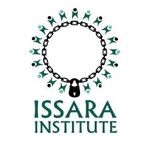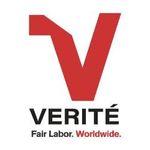Responsible Sourcing of Seafood at Nestlé - Nestlé
←
→
Page content transcription
If your browser does not render page correctly, please read the page content below
Responsible Sourcing of Seafood at Nestlé
2019 Thailand Action Plan Progress
In 2015, Nestlé launched a Thailand Action Plan for the working conditions of fishermen on vessels. This will focus
Responsible Sourcing of Seafood, detailing our on results from vessel audits since 2017. Audits for vessels
commitment to eliminating labor and human rights in this supply chain are ongoing and being conducted by
abuses in the seafood supply chain in Thailand. This was independent consultants against the Thai Union Vessel
developed based on an assessment of recruitment Code of Conduct.
practices and migrant labor conditions in our Thai seafood
supply chain carried out by our implementation partner, The Business Case for Safe Working and
Verité, on our behalf.
Living Conditions
Since 2016, one of our areas of focus has been to
This update provides an overview of the progress made in
demonstrate the business cases for safe working and
2019 in the implementation of this Action Plan.
living conditions for workers on vessels. We found that in
a challenging business environment for small and
Knowing where our seafood comes from medium sized vessel owners, implementing safe working
and how it is produced and living conditions requires not just knowledge of what
Most seafood used in Nestlé products is for our pet food best practice looks like, but also how to realize these
brands, which primarily uses fish by-products – the parts practices while staying in business.
of a fish that remain after the fillets have been removed
for human consumption. Our fish and seafood originate In 2019, we funded Verité to develop the business case
from a wide variety of sources, including wild fisheries for undertaking renovations to ensure safe working and
and aquaculture farms around the world. In 2019, Nestlé living conditions on vessels. This was based on the study
sourced approximately 150,000 MT of seafood globally, of a vessel that had implemented best practices after
with around 10% of this coming through Thailand. attending trainings on the topic. During the process of
vessel renovation in 2018 and 2019, Verité visited the
As in prior years: vessel on numerous occasions to observe renovations
100% of our suppliers that source seafood from and gather data on partial automation, an approach that
Thailand have incorporated our Responsible Sourcing can reduce cost and increase available space on vessels,
Standard requirements in their policies and have critical for sustainable working and living conditions.
included them in their relationships with their own
suppliers. Based on the information gathered, Verité mapped the
We are able to identify Thai flagged vessels used to renovation cost drivers and anticipated operating costs.
catch our seafood used in our products by name and Analysis concluded a projected payback period of 1 to 2
vessel number using non-scheduled traceability tests years. Verité also gathered input on anticipated
twice a year. We can trace 99% of our seafood of Thai improvements to conditions for workers on the vessel.
origins back to the vessel or farm level and will Preliminary analysis suggests less strenuous work and
continue to update our traceability information on an reduced overcrowding as the key potential benefits. The
annual basis. vessel will continue to be studied in operation in 2020 to
We continued to support vessel audits for the Thai verify the impact on operating costs and working
flagged vessels in our supply chain. Audits are the first conditions, and a detailed case study will be published.
step in understanding the challenges faced in the
seafood industry. The gaps we identify form the basis Worker Voice and Remediation
of our strategy to engage vessels in capacity building Nestlé is a strategic partner of the Issara Institute, a non-
activities.
profit organization focusing on strengthening labor
conditions in Southeast Asia through worker voice,
At the end of 2019, Nestlé, The J.M. Smucker Company partnership and innovation. This collaboration is driving
and Mars Petcare, together with our supplier Thai Union, improvements for workers and suppliers across Nestlé’s
signed a Memorandum of Understanding (MOU) to Thai seafood supply chain by gaining direct insights from
collaboratively fund projects in 2020 to improve the
NESTRADE Ltd.
Classification: GeneralResponsible Sourcing of Seafood at Nestlé
2019 Thailand Action Plan Progress
workers, and through the provision of an independent This aims to drive more ethical labor recruitment
grievance mechanism, responsible recruitment, and practices and more informed labor migration.
remediation actions.
Our aim is to adapt and apply the same tools used in our
Empowered Tier 1 facilities to reach workers at the vessel level
worker voice is (including worker voice at sea, ethical recruitment,
central to remediation, and debt relief). This is why we have
Issara’s contributed Issara’s Fishery Labor Improvement Program
approach. (FLIP) since 2018. In 2019, there has been progress in
Since 2017, FLIP’s engagement with vessel owners, fisheries
Issara uses its associations, recruitment agencies, government, and
Inclusive Labor current and former
Monitoring fishermen.
(ILM) approach
to provide an Figure 1. Issara staff meeting with seafood Challenges remain to
independent workers in Nestlé's supply chain, in their ensure that vessel
dormitory
channel for workers’ wages and
workers, across all tiers of our supply chain, to safely working hours are
share feedback - positive and negative - about workplace compliant with
conditions, labor recruitment, migrants’ rights, and issues legislation and
of concern. Workers can contact Issara through a range of international
channels, including the Issara smartphone app Golden standards.
Figure 2. Thai fishermen receiving
Dreams, Facebook pages in the worker’s own language, Issara worker rights booklets and
smartphone messaging apps such as Line and Viber (both port and pier helpline information
similar to WhatsApp), and a multi-lingual toll-free 24-
hour helpline. The information provided by workers Responsible Recruitment
directly supports supplier improvements and working In working on labor rights abuses in our supply chains, we
conditions. By the end of 2019, over 8,000 calls and have found that such abuses can only be solved by
messages were received on average per month. addressing unethical recruitment practices. A key focus of
our strategy therefore is on the responsible recruitment
Issara works across all tiers of Nestlé’s seafood supply of workers throughout our seafood supply chain. We
chain. Their worker voice, ILM Assessments, and expect that workers in our supply chains are recruited
remediation covers 100% of our Tier 1 (direct supplier) responsibly, meaning that they do not pay for a job, are
facilities in Thailand. Additionally, they conducted not indebted or coerced to work, and have freedom of
randomized, representative worker satisfaction surveys movement. As of 2018, all of our Thai seafood suppliers
in two processing facilities, with positive results. implemented responsible recruitment initiatives.
In 2019 over 29,400 workers (up from 19,000 in 2018) in Nestlé’s partnership with Issara
Thai seafood processing facilities in Nestlé’s supply Institute helps provide transparency
chain had access to Issara’s independent helpline and and access to recruitment information
could seek assistance and support. Our ambition is that from the home country recruitment
all workers in our supply chains will have access to process and from the first-mile at the
independent worker voice and remediation mechanisms. village level in the country of origin. In
2019, almost 5,000 foreign migrant workers in our Tier 1
Jobseekers in origin countries considering work with facilities were newly recruited from Myanmar via the
Nestlé suppliers in Thailand have access to the same formal agreement between the Myanmar and Royal Thai
assistance and support, before they leave their home. governments (MOU channel), using recruitment agencies
who have undergone responsible recruitment trainings
NESTRADE Ltd.
Classification: GeneralResponsible Sourcing of Seafood at Nestlé
2019 Thailand Action Plan Progress
and practice these principles. Responsible recruitment, training for NGOs on how to document labor risks among
also extends to recruitment agencies supporting MOU “u- vulnerable populations; cooperation building on
turn workers” who renewed their contracts after 2 years disseminating information and accessing grievance
of working in Thailand. In 2019, our suppliers processed mechanism(s) between Thai and Cambodian NGOs, and
over 300 of these workers through responsible other relevant stakeholders, and increasing the capacity
recruitment systems. of NGOs to monitor compliance of Private Employment
Agencies to their Code of Conduct.
Strengthening recruitment systems also involves capacity
building and training for our suppliers and their In 2019, Nestlé also initiated a
recruitment agencies. Issara Institute runs trainings on partnership with the Fair Hiring
business and human rights and ethical recruitment, Initiative, Inc. (TFHI), to conduct
drawing from real case studies and worker experiences, capacity building for ethical and fair
and 100% of our Tier 1 suppliers have attended these. In recruitment for agencies and
2019, training also included recruitment agency directors, employers who are enrolled in TFHI’s
office staff, and sub-agents. Suppliers, recruitment ‘On The Level’ certification program pilot. The aim of this
agencies and workers are then brought together at partnership is to increase the number of responsible
different stakeholder meetings and events, including the recruitment agents and therefore responsibly recruited
annual Issara Global Forum, where Nestlé also presented. workers in the industry.
To support workers in responsible Multi-stakeholder collaboration
recruitment efforts before they
In order to drive industry-wide change, Nestlé
depart their home countries,
participates in several platforms and supports several
Nestlé funded Verité to conduct a
multi-stakeholder initiatives in this area.
program of work in Cambodia,
where many workers in our
Nestlé is a member of the Seafood Task Force. We
supply chain come from.
actively participate in their Responsible Recruitment sub-
group, working to develop and deploy industry-wide tools
At the end of 2018 and beginning of 2019, Verité
and principles.
conducted two multi-stakeholder consultations with 23
individuals from civil society, local government, and the
As a member of the Consumer Goods Forum, the
Association of Cambodian Recruitment Agencies (ACRA)
Responsible Business Alliance’s Responsible Labor
in Phnom Penh, Cambodia to improve the migrant
Initiative, and the Institute for Human Rights in Business
workers’ recruitment practices. Consultation sessions
Leadership Group for Responsible Recruitment, we
included a gaps analysis in pre-departure activities in
participated in a series of regional stakeholder
Cambodia and an action-planning workshop to address
roundtables and government engagements in Myanmar
these gaps. The objective of these sessions was to share
and Thailand organized by these groups and Humanity
and validate with the participants Verité’s initial findings
United on driving responsible recruitment.
about the recruitment practices and experience of
Cambodian workers migrating to Thailand, map out the For additional information
actors involved in the recruitment of Cambodian migrant For inquiries about responsible sourcing of seafood at
workers, including those involved in pre-departure Nestlé, please contact us at publicaffairs@nestle.com
trainings, and to explore how to collaboratively
strengthen the current pre-departure programs for
Thailand-bound Cambodian migrant workers.
In 2019, an action plan was developed including capacity
building on ethical recruitment for commune leaders,
NGOs and the Cambodia Anti-Trafficking Commission;
NESTRADE Ltd.
Classification: GeneralYou can also read






















































